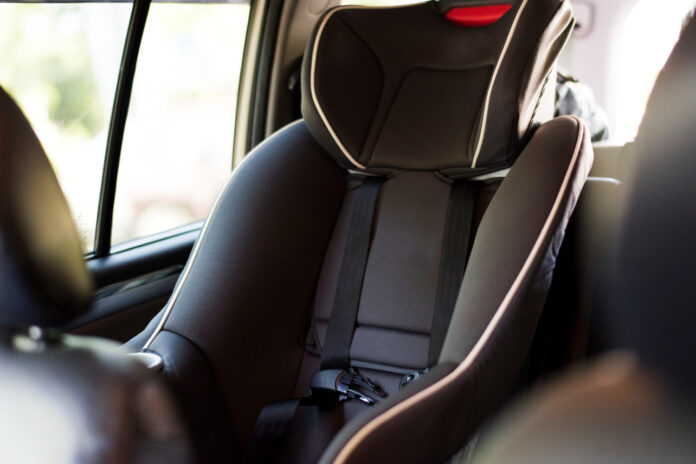UK tourists travelling to Spain with children face strict car seat regulations to avoid fines
UK tourists heading to Spain must comply with compulsory car seat rules when travelling with children. The UK Foreign Office warns holidaymakers about these regulations, stressing the importance of adherence to avoid penalties.
In Spain, seatbelts are mandatory for all passengers in both the front and back seats. Children under 1.35 meters in height must use an approved child safety seat secured in the back seat. Only if the rear seats are occupied by other children or if the vehicle lacks rear seats can children travel in the front seat. Car hire agencies in Spain offer child seats, so travellers should request one when reserving a car.
Embed from Getty ImagesFailure to correctly install a child seat or not wearing a seatbelt constitutes a serious offense and can result in fines. Moreover, Spain enforces strict drink-driving laws, with police regularly conducting roadside checks for alcohol and drugs. This adds another layer of responsibility for UK tourists driving in Spain.
The Foreign Office highlights that on-the-spot fines for various driving offences, including speeding, can be imposed by Spanish police. Accepting and paying the fine within 20 days reduces the penalty by 50%. Further information on payment procedures is available on the Spanish driving agency website.
The rules around mobile phone use are also stringent. It is illegal to use a mobile phone while driving, even if pulled over to the side of the road. Drivers must be completely off the road. Using an earpiece is also prohibited; only completely hands-free units are allowed.
These regulations come as the holiday season approaches, with many Brits planning trips to popular Spanish destinations like the Canary Islands, the Balearics, Madrid, Barcelona, Malaga, Valencia, Seville, and the islands of Lanzarote, Tenerife, Menorca, Majorca, and Ibiza.
The enforcement of these regulations underscores Spain’s commitment to road safety. The authorities aim to reduce accidents and ensure the well-being of all road users. For UK tourists, understanding and complying with these rules is crucial for a safe and enjoyable holiday.
In addition to car seat regulations, Spain has specific drink-driving laws. The permissible blood alcohol limit is lower than in the UK, and police conduct frequent checks. Tourists should remain mindful of these rules to avoid hefty fines, license loss, or even imprisonment.
For UK families travelling with children, planning ahead can prevent issues. Ensuring that child seats are available and installed correctly, understanding local driving laws, and avoiding distractions like mobile phones can significantly enhance safety and compliance.
UK tourists must also be aware of the cultural context of these regulations. Spain’s rigorous approach to road safety reflects its broader efforts to protect citizens and visitors alike. By adhering to these rules, UK tourists can contribute to the overall safety and harmony on Spanish roads.
Travellers should remember that fines for traffic violations can be substantial. Understanding the payment process, the potential for reduced fines if paid promptly, and the overall legal landscape will help UK tourists navigate these challenges effectively.
Ultimately, these regulations serve to safeguard all road users. UK tourists must prioritize compliance to ensure a smooth and trouble-free holiday experience in Spain.
Analysis:
The compulsory car seat rule for children in Spain reflects the country’s stringent road safety measures. Politically, this move aligns with Spain’s broader public safety agenda. The government aims to protect both residents and tourists, reducing the number of road accidents and associated fatalities. This policy also harmonizes with EU-wide safety regulations, showcasing Spain’s commitment to adhering to regional standards.
From a sociological perspective, the regulation underscores the importance of child safety in a society that values the protection of its youngest members. It highlights a collective responsibility towards road safety and the well-being of children, reinforcing societal norms around responsible driving practices.
Economically, the enforcement of these rules can impact tourism. While the regulation ensures safety, it may also lead to additional costs for tourists who need to rent child seats. However, these measures likely prevent higher costs associated with accidents and injuries, thus benefiting the broader economy by reducing healthcare and emergency service expenditures.
Locally, the regulation ensures that Spanish roads remain safe for all users, including tourists. It fosters a sense of shared responsibility among local residents and visitors, contributing to a safer and more enjoyable travel experience. For locals, this rule may also mean fewer disruptions and risks associated with tourist drivers unfamiliar with Spanish road laws.
Gender considerations highlight that these regulations apply universally, promoting equality in safety measures. However, practical implications may differ. For example, single parents travelling with multiple children might find these rules challenging but essential for ensuring their children’s safety.
Race and minority perspectives reveal that road safety rules apply equally to all tourists, irrespective of their background. This universality in application ensures fairness and non-discrimination in the enforcement of traffic laws.
For marginalized groups, including those with disabilities, the focus on road safety might necessitate additional accommodations and considerations to ensure compliance without undue burden.
In conclusion, the compulsory car seat rule for UK tourists in Spain serves multiple purposes. It aligns with political, economic, and sociological objectives while ensuring the safety and well-being of all road users. By adhering to these regulations, UK tourists can enjoy a safer and more pleasant holiday experience in Spain.
